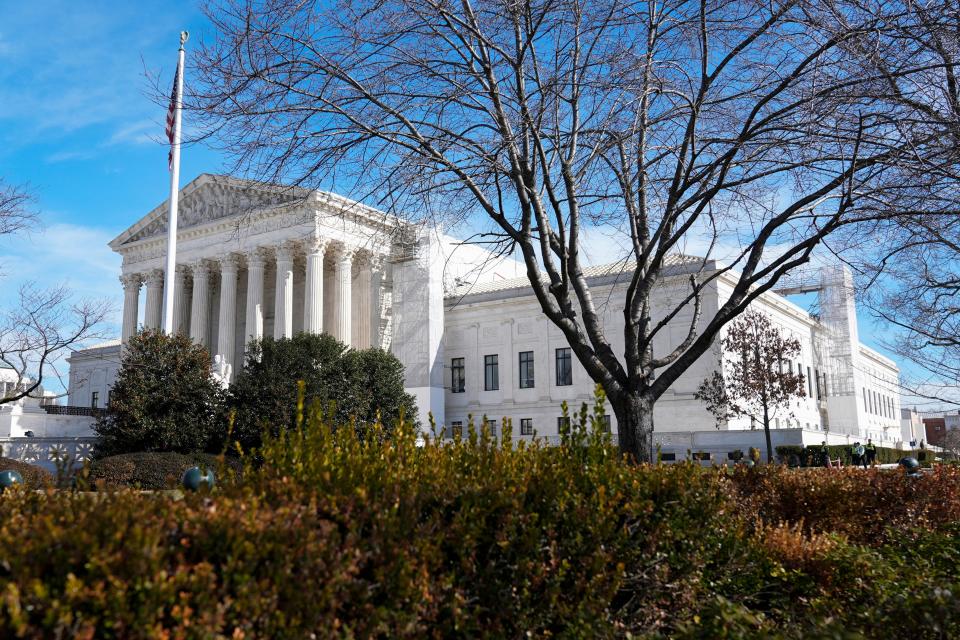Supreme Court could rule on Trump Colorado ballot eligibility as soon as Monday
- Oops!Something went wrong.Please try again later.
WASHINGTON − The Supreme Court has indicated it will issue at least one opinion on Monday, raising speculation that it will decide on the eve of Super Tuesday if Colorado and other states can use an anti-insurrectionist provision of the Constitution to keep former President Donald Trump off the ballot.
Colorado and Maine, two of the three states where the validity of votes for Trump is waiting for a decision from the high court, are among the many states holding primaries Tuesday.
The court heard oral arguments Feb. 8 on Trump's challenge to the Colorado Supreme Court's decision that Trump is ineligible to return to the White House because of his role in the Jan. 6, 2021, attack on the Capitol.
But until the court's surprise scheduling update Sunday, the justices weren't potentially scheduled to issue decisions in pending cases until March 15.
Colorado Secretary of State Jena Griswold told USA TODAY Friday she had been hoping for, and expecting, a decision two weeks ago.
“Because at the end of the day, it would be better for Coloradans and Americans to know where the Supreme Court is,” she said. “If we do not have a decision before we start announcing results on Tuesday night, votes for Trump will be counted.”
Waiting for a decision Colorado votes Tuesday. The Supreme Court hasn't said if votes for Trump will count.

As in Colorado, moves in Maine and Illinois to remove Trump from the ballot have been on hold until the Supreme Court weighs in.
During the oral arguments last month, the justices appeared to be looking for a way to ensure stability in this year’s presidential election by blocking states from determining the eligibility of a national candidate.
“I think that the question that you have to confront is why a single state should decide who gets to be president of the United States,” Justice Elena Kagan, one of the court’s three liberal justices, told the attorney for the Colorado voters challenging Trump’s eligibility.
Other justices raised concerns about a mismatch of ballots across the country if each state makes its own decisions on whether Trump –or President Joe Biden – qualifies as an insurrectionist under Section 3 of the 14th Amendment.
That section was enacted after the Civil War to bar from office those who engaged in insurrection after previously promising to support the Constitution.
Trump's lawyer told the court the Jan. 6 events were a riot, not an insurrection.
“The events were shameful, criminal, violent, all of those things, but it did not qualify as insurrection as that term is used in Section 3," attorney Jonathan Mitchell said during oral arguments.
The Supreme Court has ways to decide this case without addressing whether Trump engaged in insurrection and the justices did not spend much time debating that question during oral arguments.
The justices are not scheduled to be in the courtroom Monday so will not read their decision from the bench as they typically do.
Trump's ballot eligibility is just one of the issues the high court is deciding that will affect his future. The justices also agreed last week to decide if he can be criminally tried for trying to steal the 2020 election. And they are considering a challenge to how federal prosecutors are going after Jan. 6 participants in a case that could affect the federal charges against Trump.
A landmark case? Takeaways from Trump's immunity claim at Supreme Court
This article originally appeared on USA TODAY: Supreme Court to decide Trump Colorado ballot challenge 14th amendment

